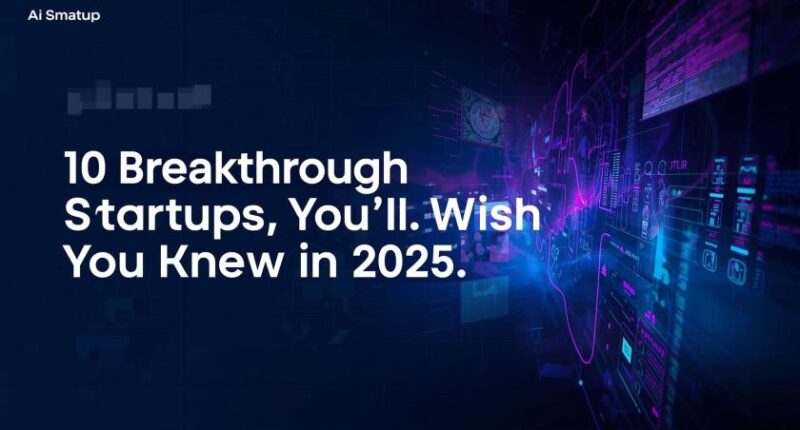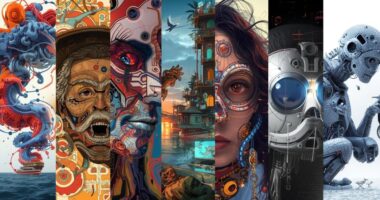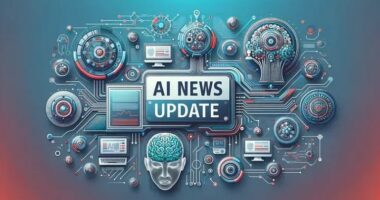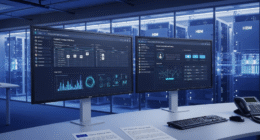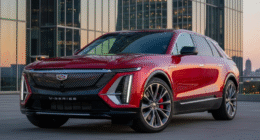Artificial Intelligence is not just a buzzword anymore—it’s a force transforming industries, economies, and everyday life. While tech giants like Google, Microsoft, and OpenAI dominate the headlines, a new wave of AI startups in 2025 is quietly shaping the future. These innovative companies are solving problems in healthcare, finance, education, sustainability, and creativity, proving that disruptive ideas often come from bold newcomers.
In this article, we’ll explore 10 breakthrough AI startups you’ll wish you knew in 2025—because chances are, they’ll be tomorrow’s industry leaders.
1. SynthMind – Redefining Human-AI Collaboration
What they do: SynthMind focuses on human-centered AI assistants for businesses. Instead of replacing workers, their tools enhance decision-making by combining real-time data analysis with human intuition.
Why it matters:
-
Helps executives make smarter strategic decisions.
-
Reduces bias in corporate planning.
-
Improves productivity in finance, logistics, and supply chain.
Key Insight: In 2025, companies embracing AI-human synergy will outpace competitors. SynthMind is leading this movement.
2. BioAIgen – AI for Next-Gen Healthcare
What they do: BioAIgen leverages AI-driven drug discovery and genetic analysis to accelerate medical research. Their algorithms reduce the time and cost of developing new treatments.
Why it matters:
-
Shortens drug development from years to months.
-
Identifies personalized treatment plans for patients.
-
Helps fight global health challenges like cancer and rare diseases.
Key Insight: With healthcare costs soaring, startups like BioAIgen are at the forefront of affordable, life-saving innovation.
3. EduVerse AI – Personalized Learning at Scale
What they do: EduVerse AI is transforming classrooms with adaptive learning platforms. Their system creates customized lesson plans based on a student’s pace, strengths, and weaknesses.
Why it matters:
-
Supports teachers with AI-driven grading and content suggestions.
-
Makes education more inclusive for students with disabilities.
-
Bridges the global education gap with scalable solutions.
Key Insight: In 2025, personalized education is no longer a luxury—it’s becoming the standard, thanks to startups like EduVerse AI.
4. GreenCompute – Sustainable AI Solutions
What they do: GreenCompute addresses one of AI’s biggest challenges: energy consumption. They build AI models that use significantly less power while maintaining high performance.
Why it matters:
-
Reduces the environmental footprint of AI training.
-
Helps companies adopt AI without skyrocketing energy bills.
-
Aligns with global sustainability goals.
Key Insight: As AI adoption grows, eco-friendly AI startups like GreenCompute will become essential to balance innovation and sustainability.
5. FinBrain – Smarter Financial Intelligence
What they do: FinBrain uses AI for financial forecasting, fraud detection, and investment optimization. Their platform serves banks, fintech firms, and individual investors.
Why it matters:
-
Detects fraud in real time with unmatched accuracy.
-
Provides personalized investment strategies.
-
Enhances financial inclusion for underserved communities.
Key Insight: Finance is one of the industries most disrupted by AI, and FinBrain is leading the charge into 2025.
6. VisionaryAI – Creative AI for Visual Arts
What they do: VisionaryAI specializes in AI-generated visual content, from ad campaigns to cinematic graphics. Their tools help designers and filmmakers push creative boundaries.
Why it matters:
-
Reduces production time for high-quality visuals.
-
Makes creative industries more accessible.
-
Enables small businesses to compete with big studios.
Key Insight: In a world dominated by digital media, AI creativity startups like VisionaryAI are reshaping design and entertainment.
7. AgriNext AI – Farming with Intelligence
What they do: AgriNext AI develops smart farming tools powered by computer vision, drones, and predictive analytics. Their system helps farmers optimize crop yields while reducing resource waste.
Why it matters:
-
Prevents crop failures with early disease detection.
-
Saves water and fertilizer through precision farming.
-
Supports sustainable food production for a growing population.
Key Insight: By 2025, agriculture powered by AI is key to feeding the world sustainably, and AgriNext AI is at the forefront.
8. NeuroLinker – Brain-AI Interfaces
What they do: NeuroLinker is pioneering neuro-AI interfaces that connect brain activity with machines. While still early-stage, their tech holds promise for medicine, gaming, and accessibility.
Why it matters:
-
Offers hope for patients with paralysis through AI-powered mobility.
-
Enhances immersive experiences in VR and gaming.
-
Opens doors for future brain-computer collaboration.
Key Insight: NeuroLinker represents the cutting edge of human-machine interaction—a startup pushing the limits of possibility.
9. TrustAI – Ethical and Transparent AI
What they do: TrustAI ensures that companies use fair, unbiased, and transparent AI systems. Their platform audits AI algorithms for bias, compliance, and explainability.
Why it matters:
-
Builds trust between businesses and customers.
-
Helps organizations meet global AI regulations.
-
Ensures ethical adoption of powerful technologies.
Key Insight: In a world concerned about AI bias, TrustAI is setting the standard for responsible and transparent AI deployment.
10. RoboAssist AI – Next-Gen Customer Service
What they do: RoboAssist AI creates intelligent virtual agents for businesses, capable of handling complex customer queries with empathy and speed.
Why it matters:
-
Improves customer experience across industries.
-
Reduces wait times and operational costs.
-
Integrates with multiple platforms for seamless service.
Key Insight: Customer service is evolving rapidly, and RoboAssist AI is redefining how companies connect with their users.
Common Themes Among 2025 AI Startups
While these startups span different industries, they share common themes that define the future of AI:
-
Personalization: Tailored solutions for individuals and businesses.
-
Sustainability: Eco-friendly AI development and deployment.
-
Accessibility: Making technology inclusive for everyone.
-
Transparency: Ethical frameworks to build trust in AI.
Conclusion
The year 2025 marks a turning point where AI startups are no longer just experiments—they’re industry disruptors. From healthcare and education to sustainability and customer service, these 10 breakthrough AI startups prove that innovation thrives outside of big tech giants.
Knowing them early means staying ahead of the curve. Because just like past unicorns that started small, today’s AI startups may be tomorrow’s household names—reshaping how we live, work, and create.
